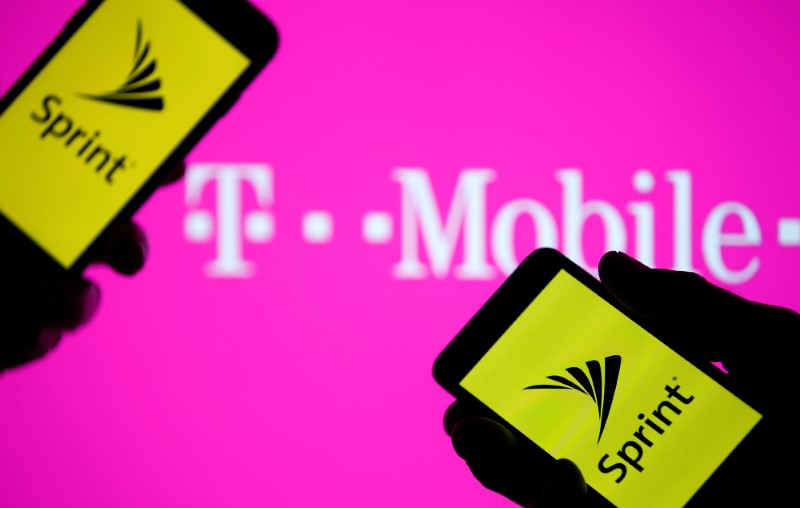This post was originally published on this site
https://i-invdn-com.akamaized.net/trkd-images/LYNXMPEG0E116_L.jpg © Reuters. A smartphones with Sprint logo are seen in front of a screen projection of T-mobile logo, in this picture illustration
© Reuters. A smartphones with Sprint logo are seen in front of a screen projection of T-mobile logo, in this picture illustrationBy Arriana McLymore and Sheila Dang
NEW YORK (Reuters) – U.S. wireless carriers T-Mobile US Inc (O:) and Sprint Corp (N:) are expected to urge a federal judge on Wednesday to let them proceed with their $26.5 billion merger, as a group of states argues the deal violates federal antitrust laws.
The states filed a lawsuit in June in a bid to block the merger, saying it would lead to higher prices for consumers. T-Mobile and Sprint contend that the merger would enable the combined company to compete more effectively with dominant carriers Verizon Communications Inc (N:) and AT&T Inc (N:).
U.S. District Court Judge Victor Marrero, who presided over a two-week trial last month in Manhattan federal court, is scheduled to hear closing arguments in the case on Wednesday.
The U.S. Justice Department approved the deal in July after the carriers agreed to sell some assets to satellite provider Dish Network Corp (O:), which would create its own cellular network to ensure that there would still be four competitors in the market. The Federal Communications Commission signed off on the deal in October.
Executives from the companies, including outspoken T-Mobile Chief Executive John Legere, testified during the trial that Sprint’s business was deteriorating and would not survive if it did not merge with T-Mobile.
The carriers argued that selling Sprint’s prepaid business and some wireless spectrum to Dish Network Corp (O:) would help the satellite TV provider become a mobile carrier and preserve a fourth wireless company in the industry.
The states, led by New York and California, maintained that Dish was ill-equipped to become a competitive fourth wireless carrier because it had not yet built a network using the wireless spectrum, or airwaves that carry data, it already owned.
The states also painted Dish as a hoarder of spectrum, a finite resource regulated by the government.
Last week, a federal judge who will assess the Justice Department’s approval of the merger, said he would allow friend of court comment filings regarding the case.
Fusion Media or anyone involved with Fusion Media will not accept any liability for loss or damage as a result of reliance on the information including data, quotes, charts and buy/sell signals contained within this website. Please be fully informed regarding the risks and costs associated with trading the financial markets, it is one of the riskiest investment forms possible.

